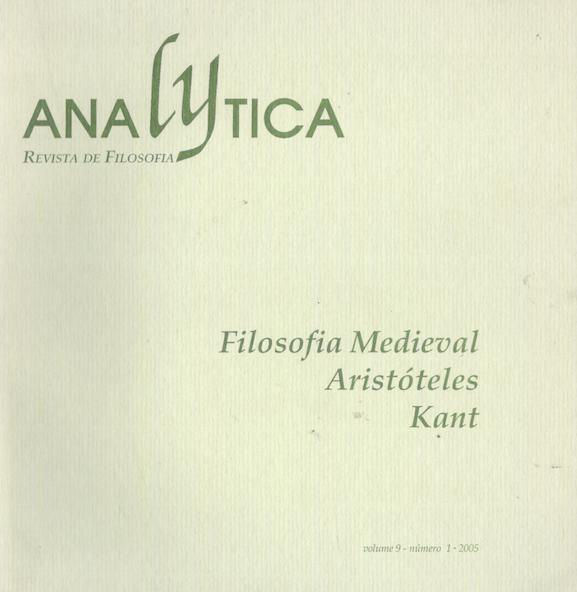Eternidade em Agostinho, interioridade sem sujeito
Resumo
O lugar da meditação sobre eternidade e tempo nas Confissões de Agostinho, ao fim dos livros autobiográficos, mostra que se trata de uma reavaliação e transformação do papel do espírito, contrariamente a um primado da subjetividade. O "eu" confessional vai descobrindo que nem eternidade nem tempo são seus objetos. O tempo, porque é um enigma que integra a condição da alma racional, lançada na exterioridade. A eternidade, idêntica à sabedoria divina, ao invés de ser apreendida pela razão finita e decaída, será o padrão de interioridade que moldará a ciência e a vontade humanas.
Abstract
The place taken by the meditation on eternity and time in the Confessions, after the autobiographical books, shows that it consists on an evaluation and transformation of the role of the spirit, quite different from the primacy of some subject. The confessional "I" discovers that neither the eternity nor the time are its objects. For time, as a puzzle, is part of the condition of the rational soul, fallen in the exteriority. Eternity, identical to God's Wisdom, shall not be apprehended by the finite and fallen reason, but must be taken as the pattern of interiority shaping human science and human will.
Downloads
Downloads
Publicado
Como Citar
Edição
Seção
Licença
Os autores que publicam nesta revista concordam com os seguintes termos:
- Os autores mantêm os direitos autorais e concedem à revista o direito de primeira publicação, com o trabalho simultaneamente licenciado sob a Licença Creative Commons Atribuição-SemDerivações 4.0 Internacional (CC BY-ND 4.0), que permite a redistribuição, comercial ou não comercial, desde que a obra original não seja modificada e que seja atribuído o crédito ao autor.
- Os autores têm autorização para assumir contratos adicionais separadamente para distribuição não-exclusiva da versão do trabalho publicada nesta revista (ex.: publicar em repositório institucional ou como capítulo de livro), com reconhecimento de autoria e publicação inicial nesta revista.
- Os autores têm permissão e são estimulados a publicar e distribuir seu trabalho online (ex.: em repositórios institucionais ou na sua página pessoal) a qualquer ponto antes ou durante o processo editorial, já que isso pode gerar alterações produtivas, bem como aumentar o impacto e a citação do trabalho publicado (Veja O Efeito do Acesso Livre).


